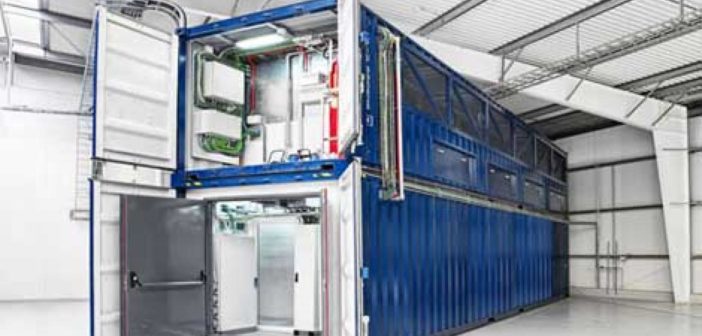What was once unique in the digital world is now commonplace, including the internet of things, machine intelligence, and cloud technology – to mention a few.
Similar trends can be observed in data centres, where ideas that were previously unique and developing are now more widely used. The quick uptake of modular data centre systems is one such instance.
What is a Modular Data Centre?
The term “modular data centre” describes a design strategy in which premade pieces are put together and furnished with hardware already chosen and installed. This strategy makes it simpler to scale up and upgrade the centre’s components as required and offers more versatility in terms of location and scheduling. This pertains to the systems and elements of the power infrastructure, such as the cables, uninterrupted power, and UPSs.
What are Some of The Benefits of a Modular Data Centre?
Mentioned below are some core benefits of a modular data centre:
- Versatility
Modular data centres can be installed almost anywhere in the world, eliminating some of the most challenging parts of traditional systems like labour, transport, and resource restrictions.
- Scalability
Modular designs enable components to be incorporated over time and as required, integrating pragmatically and in real-time with operational and maintenance resources and reducing the possibility that a site will have either wholly or partially unutilized hardware but still needs to be powered and preserved.
- Quicker and cost-efficient
Traditional data centres rely on sequential integration of site preparation, planning, and implementation tasks. Therefore, any snag has the potential to end the project. However, a modular data centre has a defined quality and a very particular design.
Instead of being constructed on-site by a separate person or provider at a building or location, things are constructed and tested in a factory. This makes it possible to reduce costs while maintaining quality.
- Tailoring as per Need
Data centre owners can combine and contrast elements to fulfil their demands and accommodate price, location, and other factors, similar to how automobile buyers might choose enhancements to their audio system or luxury options.
Where and How does Sustainability Come into the picture?
Modular data centres have advantages for sustainability. Since parts are added as needed, a data centre with a modular design may well be constructed and operated sustainably. MDCs that maintain a competitive edge in reporting and mitigating pollutants will draw clients and investors looking for thorough transparency and environmental pledges.
This is relevant to both the sustainability and ecological consequences of the data centre firms and the customers that use these centres for their purposes. UPS batteries in data centres are one instance of a way they might lessen their environmental effect.
Newer battery components like nickel-zinc have demonstrated benefits across a wide range of sustainability indicators and provide customers with a technique for decreasing their distribution network impacts. As a result, MDCs provide a better opportunity to adopt and take advantage of these sustainability advantages.
This strategy has the potential for the entire industry to gain as modular data centres become a regular design practice. Economic benefits, geographical freedom, and speedier building times are already benefits an organisation enjoys; by utilizing the chances to enhance business sustainability, the data centres can guarantee that modular design centres bring these advantages with them.
Take the Modular Approach
As modular data centres become a regular design practice, businesses can make sure that MDCs benefit everyone by maximizing the chances to increase sustainability. There are many different kinds of MDCs available in the market. If you are looking, choose a design that best suits your goals and objectives!




